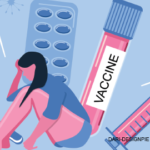We also discuss minimizing stressors and connecting with activities that feel joyful and nourishing, whether that’s going for a walk, listening to music, connecting with their religious or spiritual communities or practicing mindfulness.
Sheltering at home with others in close quarters, without the ability to get out as often [as they would like], can be emotionally charging [to patients]. Relationships and communication may be strained. This [effect] is especially amplified if relationships were strained before sheltering at home. Some patients are taking care of or are isolated from children, older parents and family members, so their concerns are, of course, amplified. Some worry about or have had loved ones, friends or neighbors become ill or die, and they are grieving. Some have lost employment, are experiencing food insecurity, are faced with lack of access to medication and have concerns about continuing to pay for other essential immediate needs.
In real time, all my social work colleagues are learning about newly created resources, many of them online, to accommodate patients who are unable to access them in person and are sharing these with each other.
Susan Bernstein is a freelance journalist based in Atlanta.



